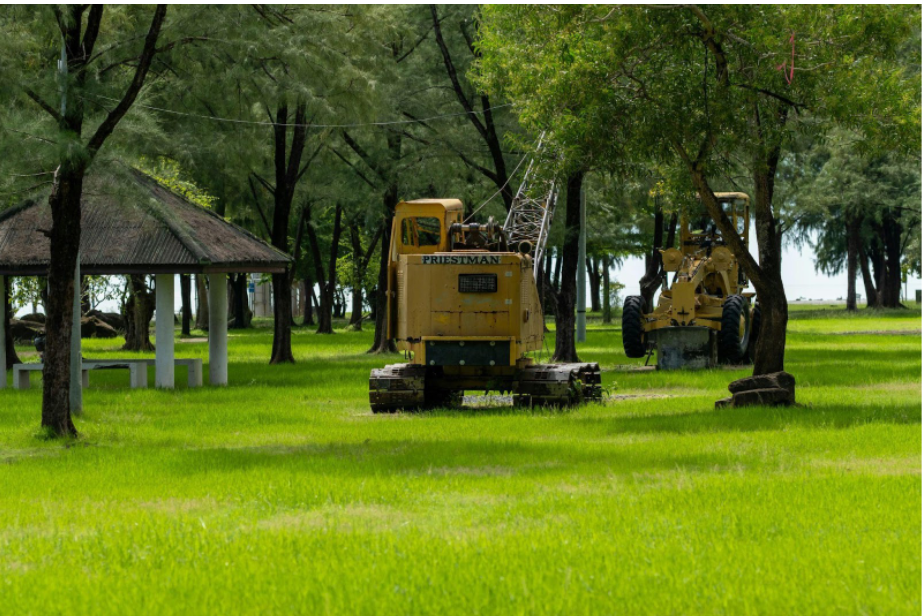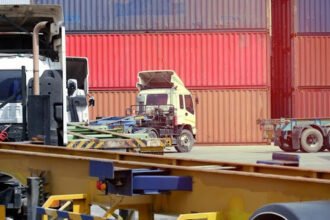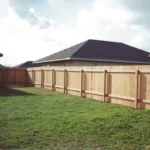Image from Unsplash
For those running a groundskeeping or landscaping business, the right equipment can mean the difference between profitable, high-quality work and missed deadlines or dissatisfied clients. Whether you’re maintaining sports fields, designing garden features, or managing commercial estates, reliable outdoor power tools are the backbone of any efficient operation. But with so many options on the market, how do you decide which tools truly deserve a spot in your arsenal?
Modern landscaping businesses have more resources than ever for comparing equipment, reading reviews, and finding deals. Online platforms like https://equipment-outfitters.com/ help professionals and new business owners make smart investments that set them up for long-term success—without wasting time or money on gear that won’t stand up to the rigors of daily use.
Here’s a comprehensive guide to the essential outdoor power tools that every serious groundskeeping and landscaping business should consider.
1. Commercial-Grade Lawn Mowers
Why they matter:
A quality mower is non-negotiable for any landscaping or groundskeeping business. Whether you’re maintaining large parks or small residential lawns, commercial mowers offer the durability, speed, and cut quality that consumer models simply can’t match.
Key considerations:
- Type: Walk-behind, stand-on, or zero-turn ride-ons—choose based on the average size and terrain of your contracts.
- Engine power: More horsepower means less strain when cutting thick, tall, or wet grass.
- Deck width: Larger decks increase productivity on big jobs, while smaller decks are more maneuverable in tight spaces.
- Maintenance: Prioritize brands with easy-to-service parts and strong dealer support.
Investing in commercial mowers up front leads to fewer breakdowns, more efficient jobs, and a polished result clients will notice.
2. String Trimmers and Brush Cutters
Why they matter:
No mower can reach every corner. String trimmers (also known as strimmers) are essential for finishing edges, trimming around trees, and handling uneven ground. For tougher jobs—like clearing thick weeds, brambles, or undergrowth—a brush cutter is the answer.
Key considerations:
- Power source: Petrol, battery, or electric. Battery tools are gaining ground for their quiet operation and reduced emissions, while petrol models remain popular for heavy-duty work.
- Interchangeable heads: Some units allow you to switch from trimmer to brush cutter or hedge trimmer, improving versatility.
- Ergonomics: Look for harnesses, vibration control, and lightweight designs to reduce operator fatigue.
3. Leaf Blowers and Vacuums
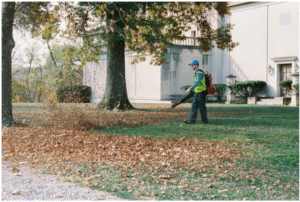
Image from Unsplash
Why they matter:
Keeping properties tidy is about more than just cutting grass. Leaf blowers help clear debris, clippings, and leaves from lawns, patios, and driveways—saving hours of manual raking. Blower vacuums can collect and shred debris, simplifying disposal and composting.
Key considerations:
- Backpack vs. handheld: Backpack models offer more power for large properties, while handheld units are ideal for smaller or more intricate jobs.
- Noise regulations: Some communities restrict loud equipment—check local rules before buying.
- Battery vs. petrol: Battery blowers have improved significantly and can be a smart choice for eco-conscious businesses.
4. Hedge Trimmers
Why they matter:
Hedges, shrubs, and ornamental trees add curb appeal—but only if they’re kept neat and tidy. Professional hedge trimmers let you shape and maintain foliage with precision and speed.
Key considerations:
- Blade length: Longer blades are faster for large hedges; shorter blades are safer and more accurate for detailed work.
- Reach: For tall hedges or wide borders, look for telescopic or long-reach trimmers.
- Cutting power: Thicker branches require higher power—match your tool to the typical jobs you tackle.
5. Chainsaws
Why they matter:
From storm cleanup to tree removal or cutting firewood, a good chainsaw is an indispensable tool for groundskeepers and landscapers.
Key considerations:
- Bar length: Shorter bars are safer for pruning and light cutting; longer bars are needed for felling trees or cutting large logs.
- Safety features: Chain brakes, low-kickback bars, and anti-vibration handles are critical for safe operation.
- Maintenance: Regular sharpening, oiling, and cleaning will keep your chainsaw running smoothly.
Safety tip:
Ensure all operators are properly trained and wear appropriate protective equipment. According to the UK Health and Safety Executive (HSE), most chainsaw injuries are preventable with the right precautions.
6. Log Splitters and Wood Chippers
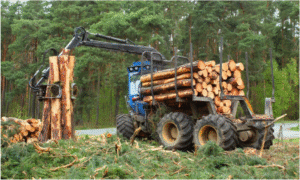
Image from Unsplash
Why they matter:
For businesses that handle tree removal, pruning, or estate management, log splitters and wood chippers are massive time-savers. Splitters turn felled wood into usable logs for sale or disposal; chippers reduce branches and brush to mulch or compost.
Key considerations:
- Capacity: Choose a model that matches the volume and size of material you typically process.
- Portability: Trailer-mounted or wheeled units make it easy to move equipment between job sites.
- Safety features: Always prioritize models with emergency shut-off switches and clear user instructions.
7. Power Washers
Why they matter:
Nothing revitalizes hard surfaces like a quality power washer. These machines quickly clean patios, driveways, fences, outdoor furniture, and more—offering instant visual results your clients will love.
Key considerations:
- Pressure rating: More pressure equals more cleaning power—but use lower settings for delicate surfaces.
- Water source: Know whether you’ll use mains water or need a portable tank for remote jobs.
- Detergent compatibility: Some models allow you to add cleaning solutions for stubborn stains.
8. Essential Accessories and Safety Gear
No outdoor power tool lineup is complete without the right accessories:
- Personal protective equipment (PPE): Safety glasses, gloves, ear defenders, steel-toed boots, and hi-vis clothing are a must on every job.
- Tool maintenance kits: Keep spare spark plugs, lubricants, and sharpeners on hand to minimize downtime.
- Fuel storage and transport: Use certified containers and follow all safety guidelines to store and move petrol or diesel.
A well-equipped team is a safer, more efficient team—and professionalism pays off with every client interaction.
Maximizing ROI: Buy Smart, Maintain Well
Outfitting your landscaping business with top-tier power tools doesn’t have to mean overspending. Platforms like Equipment Outfitters let you compare models, check reviews, and find deals on new and refurbished equipment—so you get the quality and durability you need at a price that makes sense.
Key tips for budget-conscious buyers:
- Consider manufacturer-refurbished units or “last season’s” models for significant savings.
- Buy from reputable dealers who offer warranties, service, and aftercare support.
- Set a maintenance schedule to extend the life of every tool in your fleet.
Proper care—cleaning, oiling, sharpening, and storing tools out of the weather—will dramatically increase both safety and return on investment.
A successful groundskeeping or landscaping business isn’t built on brute force—it’s built on expertise, reliability, and the right set of power tools. Investing wisely in proven equipment, prioritizing safety, and maintaining your gear pays dividends in efficiency, quality, and client satisfaction.


